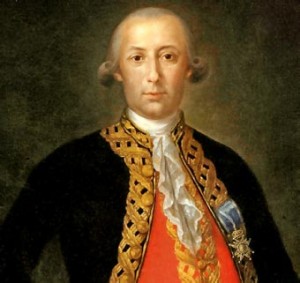How soon old, how late smart. Why do we learn lessons so late in life?
 A very few years ago, Dr. Ken Hendrickson, Sr., asked me to write a chapter about a Mexican-American Folklorist named Americo Paredes. I hadn’t known that he was still hanging out in coffee houses around the University of Texas at the same time I attended. If I had just known then what I know now, I would have knelt at his feet and learned. But I didn’t. I didn’t know.
A very few years ago, Dr. Ken Hendrickson, Sr., asked me to write a chapter about a Mexican-American Folklorist named Americo Paredes. I hadn’t known that he was still hanging out in coffee houses around the University of Texas at the same time I attended. If I had just known then what I know now, I would have knelt at his feet and learned. But I didn’t. I didn’t know.
Paredes was born on the border and was very much a man of both cultures. He spent his life “countering the negative attitudes and prejudicial views toward the Mexican American people and offering what he considered to be a more objective assessment of the matter, . . . celebrating the spirit, wisdom and dignity of his people.” He is best known for his dissertation With His Pistol in His Hand: A Border Ballad and Its Hero and the semi-humorous poke at prejudice against Mexicans in Texas: George Washington Gómez: A Mexicotexan novel.
 As a Mexican-American myself, the condescension of Americans toward the Spanish culture was one I couldn’t understand. Having been raised in Mexico City, a city far older than any in the United States, I knew of its magnificent ornate churches, dazzling colonial palaces, scholarly universities, advanced hospitals, flowered-decked plazas, spacious botanical gardens, and wide, well-lighted boulevards—these last thanks to my hero, Bernardo de Gálvez in 1785.
As a Mexican-American myself, the condescension of Americans toward the Spanish culture was one I couldn’t understand. Having been raised in Mexico City, a city far older than any in the United States, I knew of its magnificent ornate churches, dazzling colonial palaces, scholarly universities, advanced hospitals, flowered-decked plazas, spacious botanical gardens, and wide, well-lighted boulevards—these last thanks to my hero, Bernardo de Gálvez in 1785.
 During the 1960s, when I first arrived in the United States, I learned about prejudice. It was popular for minorities to pity themselves and their victimization by the broader society. The attitude was one of helplessness under the oppression imposed on them. The result? Violence and riots that did nothing to either change the attitudes of the society at large or to improve the condition of the minorities.
During the 1960s, when I first arrived in the United States, I learned about prejudice. It was popular for minorities to pity themselves and their victimization by the broader society. The attitude was one of helplessness under the oppression imposed on them. The result? Violence and riots that did nothing to either change the attitudes of the society at large or to improve the condition of the minorities.
 When I entered the Ph.D. program at the University of Texas in 1989, I came under the influence of the late, great Nettie Lee Benson. She encouraged me to write my dissertation, De León: A Tejano Family History, on the Mexican Empresario Martín de León, and his founding of the town of Victoria, Texas. He and Stephen F. Austin (yesterday’s blog) were the only two empresarios who actually succeeded in their colonial settlements.
When I entered the Ph.D. program at the University of Texas in 1989, I came under the influence of the late, great Nettie Lee Benson. She encouraged me to write my dissertation, De León: A Tejano Family History, on the Mexican Empresario Martín de León, and his founding of the town of Victoria, Texas. He and Stephen F. Austin (yesterday’s blog) were the only two empresarios who actually succeeded in their colonial settlements.
 At the university, I objected to the attitudes of victimization and self-pity that I saw around me among students and scholars. Like Paredes, I wanted to look at the success of the Mexicans in Texas, not their failures. I wanted to focus on their resilience, on the many ways they found to survive and thrive in a culture opposed to their success. I knew that many of the old Tejano families had lost land during the years after the arrival of Austin and his Americans. But there were some, like the De León family, who fought for their rights and retained their ranches.
At the university, I objected to the attitudes of victimization and self-pity that I saw around me among students and scholars. Like Paredes, I wanted to look at the success of the Mexicans in Texas, not their failures. I wanted to focus on their resilience, on the many ways they found to survive and thrive in a culture opposed to their success. I knew that many of the old Tejano families had lost land during the years after the arrival of Austin and his Americans. But there were some, like the De León family, who fought for their rights and retained their ranches.
Although I was born Mexican, I don’t ‘pass.’ I am blonde haired and very Anglo looking. Because of my looks, I have been dismissed by the “Raza” as someone who could not understand the racism and prejudice against Mexicans. But I do understand. My father’s family, the Castillos, were among those driven out of Texas during the 1870s by land-hungry Anglos. But just because they lost land back then is no reason to cry “victim” now. I want to know how they survived. What did they do to succeed?
When I wrote the chapter on Paredes, I learned that he insisted that his Mexican-American students study their own history. I realized, finally, that I needed to write the stories of the Mexicans who had suffered and won. I determined to explore the Spanish roots of the Bourbon Enlightenment that had inspired Bernardo de Gálvez. Like the Regency Romances of England, New Spain, too, has its fascinating family sagas with elegant courtiers, dashing heroes, and beautiful damsels in distress.
They just haven’t been published—yet.



… [Trackback]
[…] Find More here on that Topic: carolinacastillocrimm.com/changing-gears-inspiration-from-the-age-of-enlightenment/ […]
… [Trackback]
[…] Read More Information here to that Topic: carolinacastillocrimm.com/changing-gears-inspiration-from-the-age-of-enlightenment/ […]
… [Trackback]
[…] Find More to that Topic: carolinacastillocrimm.com/changing-gears-inspiration-from-the-age-of-enlightenment/ […]
… [Trackback]
[…] There you can find 84985 more Info on that Topic: carolinacastillocrimm.com/changing-gears-inspiration-from-the-age-of-enlightenment/ […]
… [Trackback]
[…] Find More on that Topic: carolinacastillocrimm.com/changing-gears-inspiration-from-the-age-of-enlightenment/ […]
… [Trackback]
[…] Find More here on that Topic: carolinacastillocrimm.com/changing-gears-inspiration-from-the-age-of-enlightenment/ […]
… [Trackback]
[…] Find More Info here on that Topic: carolinacastillocrimm.com/changing-gears-inspiration-from-the-age-of-enlightenment/ […]
… [Trackback]
[…] Info on that Topic: carolinacastillocrimm.com/changing-gears-inspiration-from-the-age-of-enlightenment/ […]
… [Trackback]
[…] Info on that Topic: carolinacastillocrimm.com/changing-gears-inspiration-from-the-age-of-enlightenment/ […]
… [Trackback]
[…] Find More to that Topic: carolinacastillocrimm.com/changing-gears-inspiration-from-the-age-of-enlightenment/ […]
… [Trackback]
[…] Read More Info here on that Topic: carolinacastillocrimm.com/changing-gears-inspiration-from-the-age-of-enlightenment/ […]
… [Trackback]
[…] Find More on that Topic: carolinacastillocrimm.com/changing-gears-inspiration-from-the-age-of-enlightenment/ […]
… [Trackback]
[…] Information on that Topic: carolinacastillocrimm.com/changing-gears-inspiration-from-the-age-of-enlightenment/ […]
… [Trackback]
[…] Read More here to that Topic: carolinacastillocrimm.com/changing-gears-inspiration-from-the-age-of-enlightenment/ […]
… [Trackback]
[…] Find More on that Topic: carolinacastillocrimm.com/changing-gears-inspiration-from-the-age-of-enlightenment/ […]
… [Trackback]
[…] Here you can find 97916 additional Info to that Topic: carolinacastillocrimm.com/changing-gears-inspiration-from-the-age-of-enlightenment/ […]
… [Trackback]
[…] Info to that Topic: carolinacastillocrimm.com/changing-gears-inspiration-from-the-age-of-enlightenment/ […]
… [Trackback]
[…] There you can find 57969 additional Information to that Topic: carolinacastillocrimm.com/changing-gears-inspiration-from-the-age-of-enlightenment/ […]
… [Trackback]
[…] There you can find 75350 additional Info on that Topic: carolinacastillocrimm.com/changing-gears-inspiration-from-the-age-of-enlightenment/ […]
… [Trackback]
[…] Read More here to that Topic: carolinacastillocrimm.com/changing-gears-inspiration-from-the-age-of-enlightenment/ […]